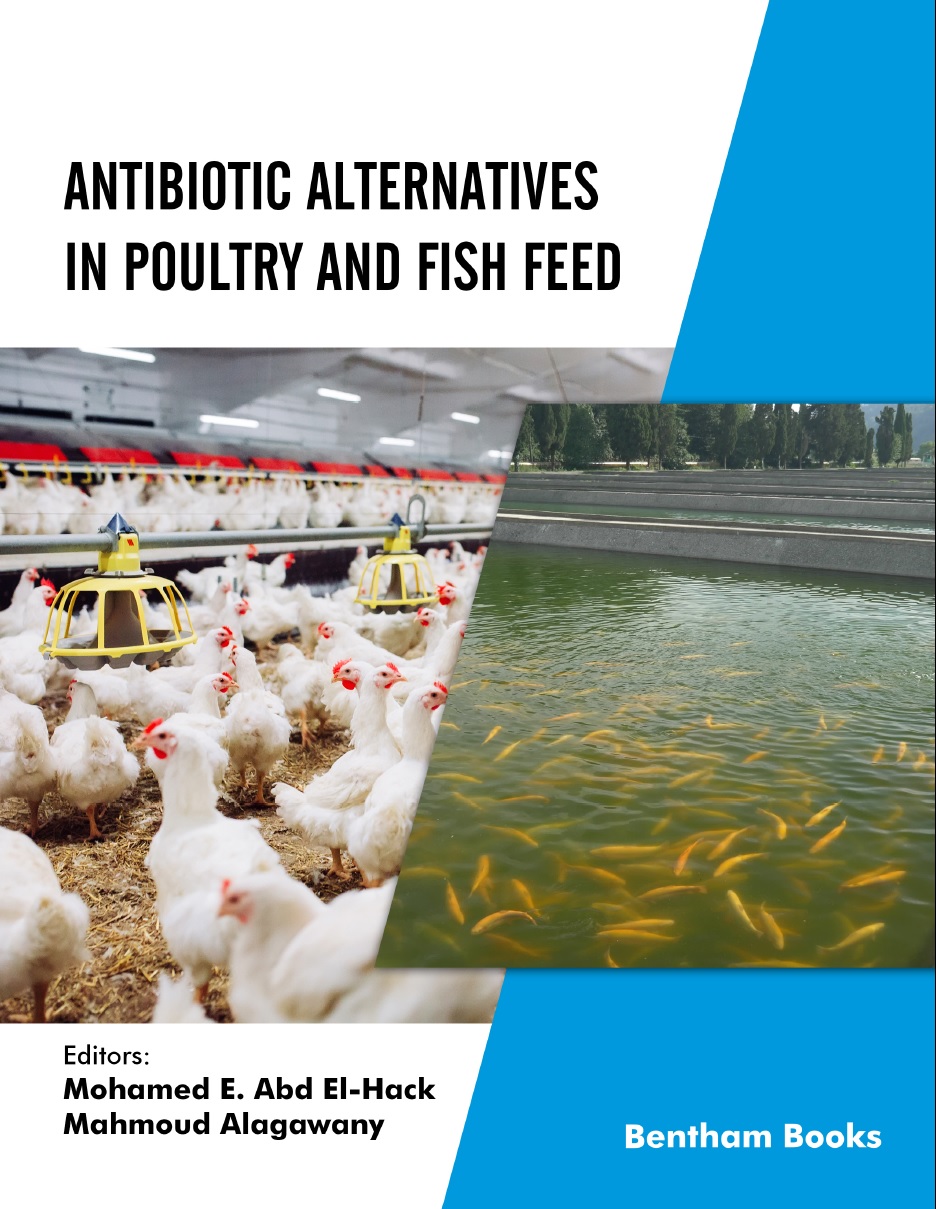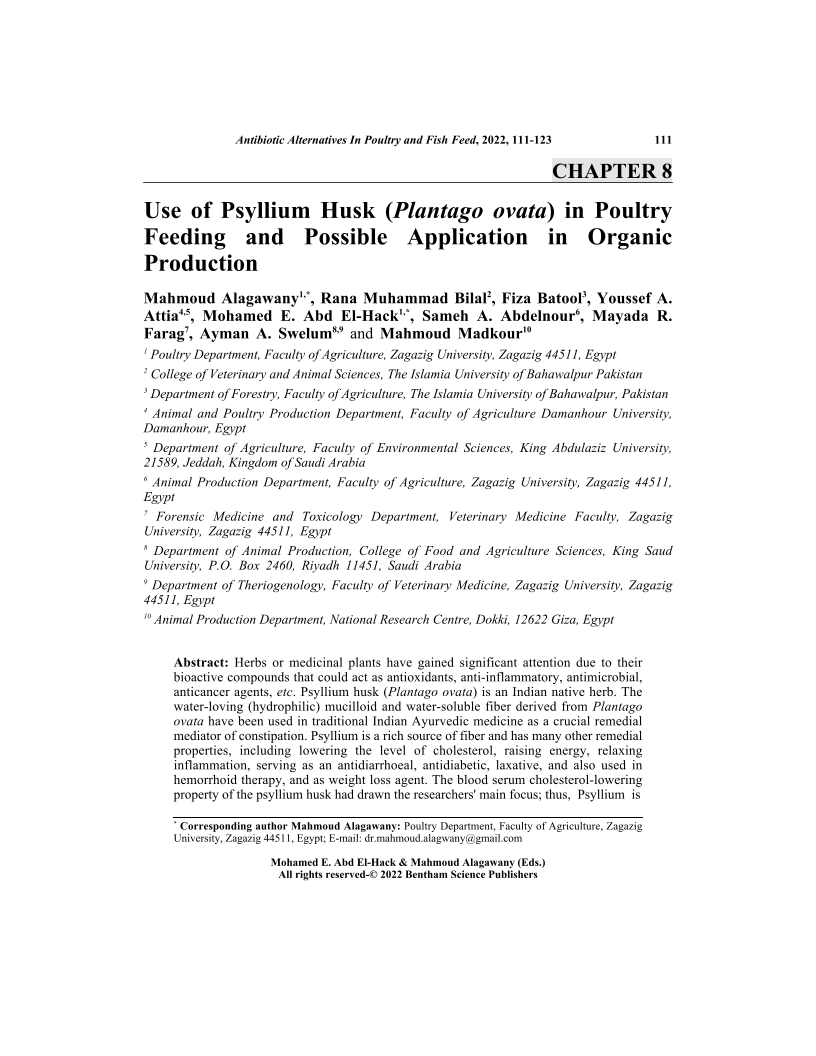Use of Psyllium Husk (Plantago ovata) in Poultry Feeding and Possible Application in Organic Production

- Authors: Mahmoud Alagawany1, Rana Muhammad Bilal2, Fiza Batool3, Youssef A. Attia4, Mohamed E. Abd El Hack5, Sameh A. Abdelnour6, Mayada R. Farag7, Ayman A. Swelum8, Mahmoud Madkour9
-
View Affiliations Hide Affiliations1 Poultry Department, Faculty of Agriculture, Zagazig University, Zagazig 44511, Egypt 2 College of Veterinary and Animal Sciences, The Islamia University of Bahawalpur, Pakistan 3 Department of Forestry, Faculty of Agriculture, The Islamia University of Bahawalpur, Pakistan 4 Animal and Poultry Production Department, Faculty of Agriculture Damanhour University,Damanhour, Egypt 5 Poultry Department, Faculty of Agriculture, Zagazig University, Zagazig 44511, Egypt 6 Animal Production Department, Faculty of Agriculture, Zagazig University, Zagazig 44511,Egypt 7 Forensic Medicine and Toxicology Department, Veterinary Medicine Faculty, ZagazigUniversity, Zagazig 44511, Egypt 8 Department of Animal Production, College of Food and Agriculture Sciences, King SaudUniversity, P.O. Box 2460, Riyadh 11451, Saudi Arabia 9 Animal Production Department, National Research Centre, Dokki, 12622 Giza, Egypt
- Source: Antibiotic Alternatives in Poultry and Fish Feed , pp 111-123
- Publication Date: October 2022
- Language: English
Use of Psyllium Husk (Plantago ovata) in Poultry Feeding and Possible Application in Organic Production, Page 1 of 1
< Previous page | Next page > /docserver/preview/fulltext/9789815049015/chap8-1.gif
Herbs or medicinal plants have gained significant attention due to their bioactive compounds that could act as antioxidants, anti-inflammatory, antimicrobial, anticancer agents, etc. Psyllium husk (Plantago ovata) is an Indian native herb. The water-loving (hydrophilic) mucilloid and water-soluble fiber derived from Plantago ovata have been used in traditional Indian Ayurvedic medicine as a crucial remedial mediator of constipation. Psyllium is a rich source of fiber and has many other remedial properties, including lowering the level of cholesterol, raising energy, relaxing inflammation, serving as an antidiarrhoeal, antidiabetic, laxative, and also used in hemorrhoid therapy, and as weight loss agent. The blood serum cholesterol-lowering property of the psyllium husk had drawn the researchers' main focus; thus, Psyllium is thought to be a plausible herbal agent helpful in treating hyperlipidemia. In various animal models, cholesterol levels are reduced by binding Psyllium husk with bile acids in the intestinal, thereby lowering its absorption rate. Screening literature has demonstrated that Psyllium husk could be utilized as an antidiarrheal mediator to cope with the diarrheal symptoms associated with poultry farming disorders. Additionally, Psyllium may also benefit various poultry species' production and growth traits. The present chapter explored Psyllium's potential responsibility for coping the hypercholesterolemia and the uses of psyllium husk as a safe feed additive in poultry farming for organic production and lowering cholesterol in meat and for production of functional foods.
-
From This Site
/content/books/9789815049015.chap8dcterms_subject,pub_keyword-contentType:Journal -contentType:Figure -contentType:Table -contentType:SupplementaryData105

